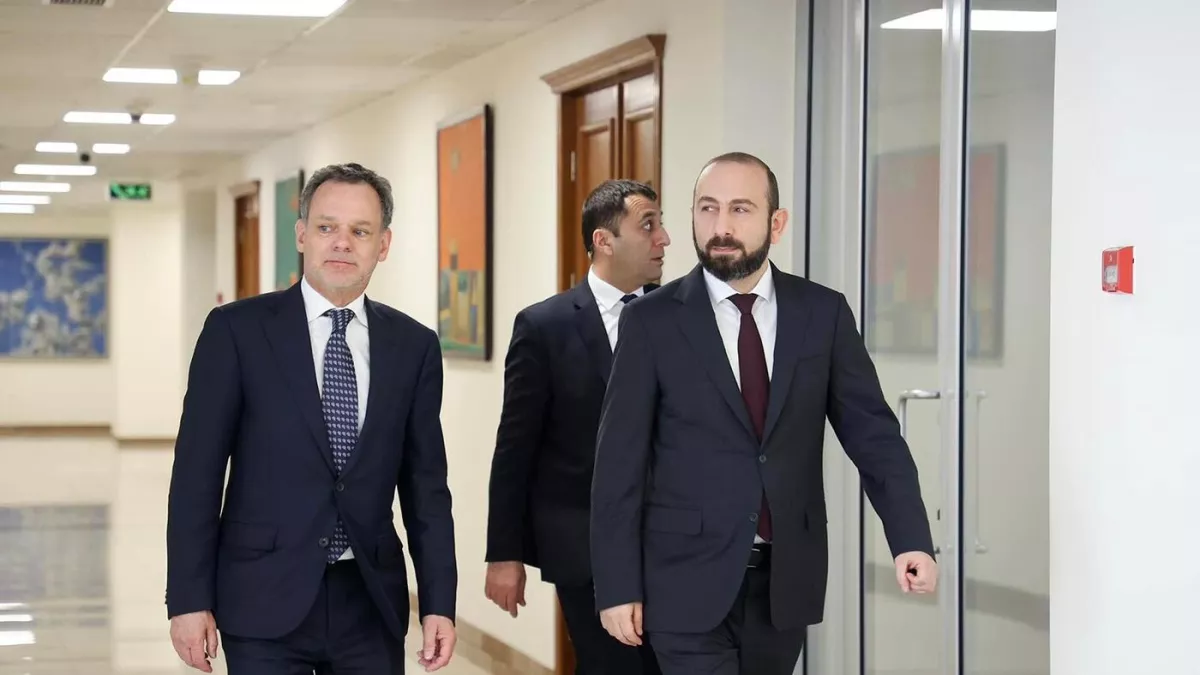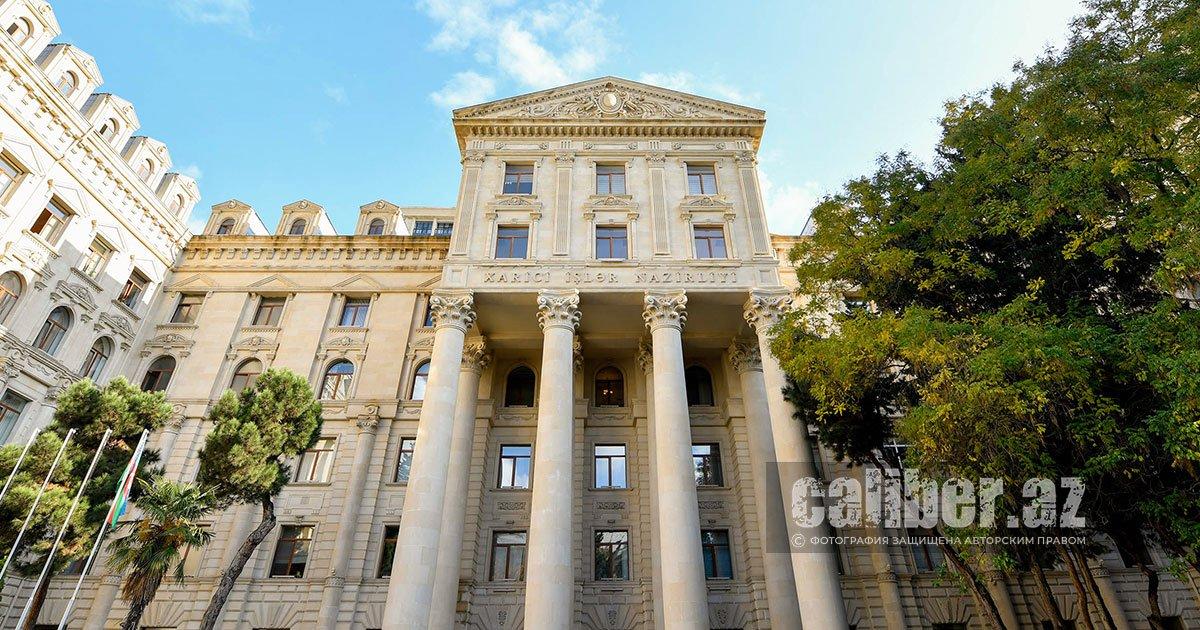The Netherlands in Armenian captivity On Amsterdam’s “forgetfulness”
The Netherlands once again made headlines with its outspoken affection for Armenia and its anti-Azerbaijani bias. However, this bias is more accurately described as a disregard for the norms of international law in relation to the South Caucasus situation (both past and present). This was highlighted by the statement made by Dutch Foreign Minister Caspar Veldkamp during a joint press conference with his Armenian counterpart Ararat Mirzoyan. Referring to Armenian separatists accused of various crimes as "prisoners and captives" (within the context of the historical Baku trial), he emphasized the importance of their proper protection in line with international standards. Veldkamp assured that "the Netherlands and the EU will continue to advance the issue, we have drawn our attention on this issue."
In this regard, the issue is not even about the doubt that arises from the statement made by the head of the Dutch foreign ministry, but rather whether he is truly observing the course of the fair Baku process. Most likely, he is not, because although Veldkamp ignored the question about "possible sanctions against the leadership of Azerbaijan," he emphasized the aspect of "international standards." This focus leads us to the need for a brief excursion into relatively recent history.
First of all, it is worth noting the inclusion in the Constitution of the Kingdom of the Netherlands of the fact that "all citizens of the Netherlands capable of military service are obligated to defend the independence of the state and its territorial integrity." A beautiful assertion, isn’t it? However, if this fundamental principle is recognized as significant for the Netherlands, why has it been ignored by Amsterdam over the past few decades in relation to Azerbaijan? To avoid being unsubstantiated, let’s refer to some historical episodes.

In 2003, a delegation led by the director of the Dutch Interchurch Peace Council, Wilco de Jonge, illegally visited the occupied Karabakh, where the continuation of the "project to strengthen civil society organizations" in the puppet "NKR" was discussed.
In 2004, another violator of international law was the then EU human security expert, Professor Miënt Jan Faber from the University of Amsterdam, who was received by none other than the self-proclaimed "president" Arkadi Ghukasyan, who is now giving testimony within the framework of the Baku process.
In 2010, today’s NATO Secretary-General, then Prime Minister of the Netherlands, Mark Rutte, loudly proclaimed at the OSCE summit the need to "take true responsibility for collective security," including addressing "the constantly troubling issues in Europe," including "Nagorno-Karabakh." The question arises: did Rutte at that time genuinely care about the genocide of Azerbaijanis committed by Armenian occupiers? Or was he concerned about the urbicide, ecocide, and culturcide against the Azerbaijani people? The question is rhetorical, of course.
In 2013, the Dutch company Koenders and Partners organized a "working visit" to Dutch cities for the so-called "Minister of Agriculture of the NKR" and an individual referred to as the "Executive Director of the NKR Rural Development and Agriculture Fund."
In 2015, during hearings in the Dutch Parliament, MP Pieter Omtzigt stated: "We must ensure that everyone is involved in the negotiations: Armenia, Azerbaijan, and the Nagorno-Karabakh society, because sometimes it seems like they are forgotten."
In 2016: In the full-scale report presented by the Azerbaijani Ministry of Foreign Affairs titled "Illegal Economic and Other Activities in Azerbaijan's Occupied Territories," it is noted that a list of companies, with comprehensive information about their activities, was also included in two major reports published in 2017 and 2018 by the Israeli research center Kohelet Policy Forum (KPF). These documents, for example, mention ArmSwissBank, 20% of whose shares "are owned by the investment company Jongo B.V. in the Netherlands."

In 2020: In October, the Dutch government stated in a letter to the country's parliament that it was "aware of Türkiye's involvement in the deployment of Syrian militants in the Karabakh conflict zone, who are fighting on Azerbaijan's side." In November, the Dutch Parliament called on the government to "advocate at the European Union level for sanctions against the President of Azerbaijan, Ilham Aliyev, and his family."
In 2024: The Dutch Parliament continues to issue anti-Azerbaijani resolutions. The lawmakers made a statement about the alleged "forced eviction of Armenian residents from Karabakh." Additionally, the Dutch government portal referred to Karabakh as a "captured region," still calling it "Nagorno." In response, the Azerbaijani Ministry of Foreign Affairs expressed regret that, despite nearly 30 years of the Karabakh region being under Armenian occupation, the Netherlands had turned a blind eye to "these illegal actions." The Dutch side was urged to end such statements, which "hinder the further development of the region based on respect for the norms and principles of international law." From October 2020 to May 2024, the Dutch Parliament adopted 26 (!) biased anti-Azerbaijani resolutions.
It is interesting to wonder if Veldkamp is aware of the aforementioned cases. Apparently, he is not. Otherwise, perhaps he would not have so eagerly invoked international law in the context of the South Caucasus, where his fellow citizens have repeatedly violated the norms and principles of international law within and around the region.
At the same time, it would be useful for Veldkamp to know that, as early as 2023, Azerbaijan initiated arbitration proceedings, seeking compensation for damages caused by Armenia's violation of numerous provisions of the agreement and international law principles.
And another point. More than ten years ago, the Netherlands unequivocally expressed full support for the principle of territorial integrity and inviolability of Ukraine. Therefore, the official Amsterdam is well aware of international law in this regard. But as we noted at the beginning of the article, this highlights the glaring anti-Azerbaijani bias of the Netherlands.
So, the question arises: are the "flying Dutchmen," heirs of Spinoza, Van Gogh, Rembrandt, Cruyff, and Van Basten, willing to abandon their one-sided stance on the South Caucasus?








